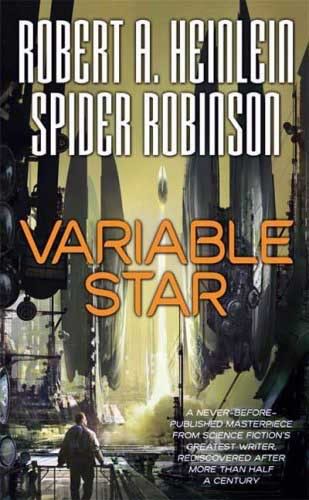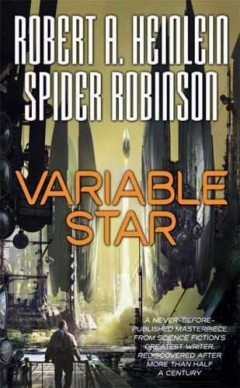Melancholy Elephants, a Hugo Award winner from 1983, is the kind of story you get when a talented craftsmen, after some genuine contemplation on a topic, has come up with a unique perspective on an issue, discovered something worth thinking about. For the libertarian, it has the added attraction of advocating freedom of artistic expression, as well as a frank depiction of government corruption. Though Spider Robinson’s short work fizzles at the end, it’s engaging and thought-provoking and ultimately worth your time.
Despite the mildly disappointing ending, I cannot find fault with the beginning. Even the title is exactly what a title should be: odd enough to be intriguing while encapsulating what the story is about, but this becomes obvious only afterwards. It gives away nothing of the tale at the outset.
The short story format affords an author little time to grab his reader’s attention; Spider Robinson does it in the first paragraph. The main character, Dorothy Martin, has such a bizarre reaction to a situation she is subjected to that any impulse to put the story down evaporates, rather like what a startle does to the impulse to yawn.
 The situation resolved, Mrs. Martin takes a short trip to meet someone, passing through a blatant sci-fi setting. In the tradition of Robert Heinlein, whose notes for a story the author turned into the novel Variable Star, Mr. Robinson describes the scene sparingly, as if there were nothing extraordinary about, for instance, cars that fly themselves. Indeed, he never tells us they do, we simply infer it.
The situation resolved, Mrs. Martin takes a short trip to meet someone, passing through a blatant sci-fi setting. In the tradition of Robert Heinlein, whose notes for a story the author turned into the novel Variable Star, Mr. Robinson describes the scene sparingly, as if there were nothing extraordinary about, for instance, cars that fly themselves. Indeed, he never tells us they do, we simply infer it.
As foreign as the world seems to us, Dorothy Martin is even more peculiar. Her actions, reactions and thoughts suggest… something odd, even alien. The reader gets the feeling that there must be some revelation about her, something vital to the story waiting further down the page.
This set up is put to a very smooth prose, with a touch of distinguishing personality. For instance, in describing Dorothy’s feelings at one point, Robinson writes, “She knew the effect was intentional, and could not transcend it; this irritated her, which irritated her.”
(Massive Spoilers Ahead!)
Melancholy Elephants diminishes as it proceeds. It’s a gentle slope down, not a precipitous drop, and it leads to no great dissatisfaction, but nevertheless the story fails to find a suitable end to its promising beginning.
Dorothy Martin visits a US Congressman to purchase his opposition to copyright law, only to discover he has already been bought by her adversaries. She explains to him why she opposes copyright law, taking what one might call a Big Picture Point of View if one were inclined to undersell the point. She elaborates on themes and worries that others, notably John Stuart Mill, have detailed before, but through her Spider Robinson extends them and draws novel conclusions. That these conclusions are not entirely convincing or probable in the real world is not detrimental to the story; they are certainly ingenious, carefully thought out and we can accept them as the story’s conceit and suspend our disbelief.
What is detrimental is that she persuades the Congressman to throw away his career for her cause based on her apprehensions and conjectures. Keep in mind that this is a Congressman who accepts a bribe with no greater qualm than a shopkeeper accepts money for the milk he sells. If her theory fails to convince the reader, and in my case I was already inclined to agree with the larger point about copyrights, then how much less should it convince a cynical, master politician, a man conditioned by his profession to miss the big picture?
Ultimately, this conversion leads to a happy ending – of sorts – in a story that needs something bleaker. It also means the great moral dilemma was faced not by the protagonist, but by a character to whose thoughts we have not been privy, who was absent at the beginning and simply means less to us. The effect of this can only be to make the ending less compelling, less of a punch in the gut. Furthermore, there was no great revelation about Dorothy Martin, leaving the reader uncertain whether her abnormal character is meant as a commentary on a society choked by copyrights or something else.
I recommend the piece, though, for its thoughtfulness and cleverness, and wish it had managed a fitter conclusion to an inspired idea.















